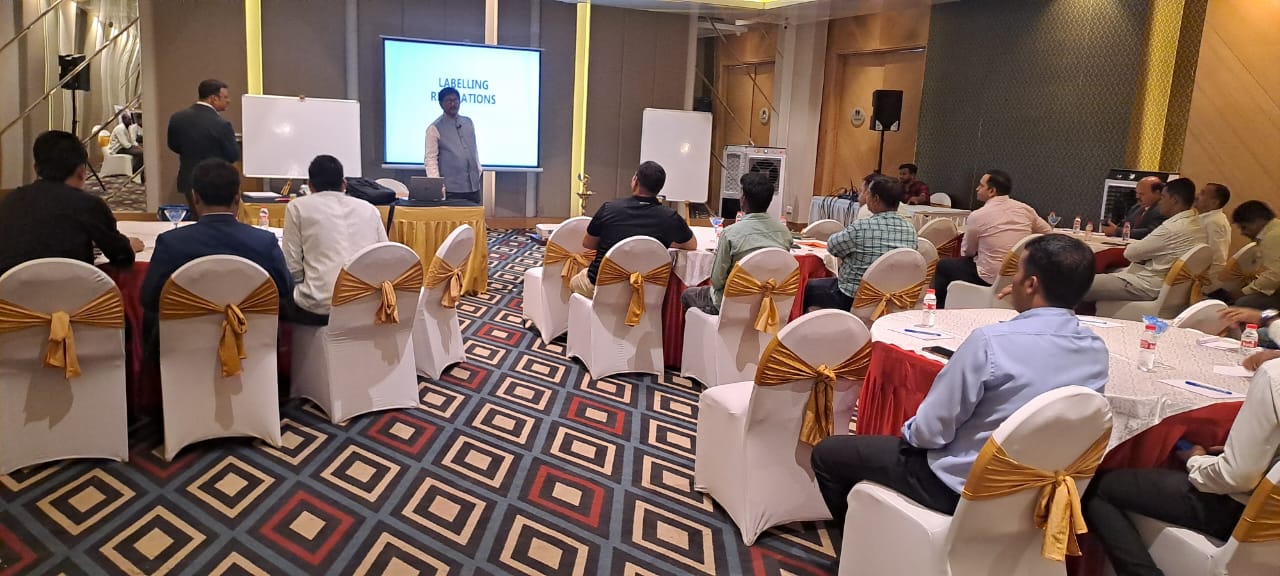Sustainability, many would agree, is a challenge in the food industry. Farming to packaging, all stakeholders of the supply chain need to pitch in. Experts talk about this challenge, meeting it, and using other produce to their benefit.
Gautam Chaudhry
Chef and Founder
Demiurgic Hospitality
Sustainability through and through
It is important that things are initiated at various levels simultaneously. Initiating compliances from the government to introduce processes should be the first one. The next key influencers are the media and bloggers, who inform the consumer of pros and cons. Chefs also need to be hugely accountable towards this. We need to educate our customers about seasonal and local produce. The journey to reach the goal is not easy, but constant efforts and a focused thought process can make it happen.
Reinventing the wheel
Like most other data, this one is slightly misleading. We may be the highest producer of milk (considering we are close to 1.4 billion), but in the per capita consumption index we fall way below and consume only 47 litres of milk a year compared to countries like Ireland and Finland that consume over 120 litres. India remains as one of the highest exporters of skimmed milk, but what needs to change is overall approach. A simple dependency on a couple of sectors will not help us achieve our sustainability goal; what is needed is to reinvent the wheel and start using home-grown ingredients. As chefs, we should spearhead this battle.
Michael Swamy
Chef Patron & Food Media Specialist
Learning and imparting
Sustainability is challenging, and bringing about change can be daunting at times. The vegetables we grow are still plentiful, but not up to the mark. The quality of local vegetables compared to the ones produced by organised farming by large conglomerates is very different. Urban farming, hydroponics, and aquaponics are the trend these days. The re-introduction of organic food to one’s system and lesser use of pesticides that kill insects required for pollination and the entire growth process is the need of the hour. At the end of the day, it comes down to education. If one segment gets the education, it is not passed down, thus hindering the process of sustainability.
A mass movement
Printed media, visual and audible media needs to be used effectively to reach the smaller cities. Japan uses many techniques that replenish the soil so that crops benefit; we need to learn from them in many ways. Masanobu Fukuoka is a famous farmer who wrote books and created a worldwide following for his techniques of organic and sustainable farming. We need such movements here as well and someone who needs to take on that responsibility.
Ashish Bhasin
Executive Chef
Trident, Bandra-Kurla
Challenging, not impossible
Nothing comes for free in this world. Yes, sustainability is challenging due to globalisation, but not impossible. We need to use local produce, reduce food miles, save energy, and prevent climate change. We must follow organic practices and protect soil quality. Educating and training farmers about best practices is also a must.
Other produce to the rescue
India being one of the largest producers of milk and vegetables in the world, can use this to its advantage. We need to increase dairy and milk products in our diet. We still haven’t optimised our dairy usage. Local produce of cheese and reduction in import is also important.
Rajeev Goyal
Chef & Founder
India Food Tour
Marketing the produce
At this movement, India is going through a revolutionary period where I see concepts of farm-to-table and organic food encouraging. Also, governing bodies are encouraging food processing industries and showcasing India as a lucrative investment destination. That said, I feel that the country’s indigenous produce should be marketed at the grass-root level and involve other tools of marketing such as agro tourism, culinary tourism, and rural tourism. One must also work towards modernising agriculture, rather than leaving it all to an individual. Methods should be adopted to create enough demand.
Vivek Saggar
Head – Competitions & Business Development
Tourism & Hospitality Skill Council
A practice riddled with challenges
While sustainability in the food industry is a major concern, one needs to focus on the challenges being faced by the food industry. Making food more convenient is one such challenge, where the growth of snacking among consumers has caused manufacturers to rethink the design and packaging of their products to make them more convenient and appropriate for eating on the go. Slow product innovation cycles does not allow the market to align itself with emerging consumer trends in a timely manner due to the process of creating new, relevant products and moving them through R&D, testing, and marketing to the retail chain. Manufacturers are also looking for ways to add value to their products in ways that make sense without incurring exorbitant costs or adding ingredients that consumers may not recognise and therefore, could reject.
Another very real challenge is that many manufacturers add sugar or other sweeteners to products ranging from condiments to pasta sauce, and with more consumers reading product labels these days, that could spell trouble for those manufacturers. Lastly, as a means to try and alleviate some of the pressures of the product innovation cycle, food and beverage companies have been acquiring smaller natural and organic companies that are slowly eating away the legacy of the larger brand’s market share.
Competition and adulteration
As more and more people are getting into the business, more competition and adulteration is taking place. The government is taking steps, but people just want to earn profits. We are hopeful, but as of now it is difficult to tell whether our country can benefit from utilising its produce of vegetables and milk in the future.
Abhishek Basu
Executive Chef
The Park New Delhi
Learning as you go
As a consumer, it was challenging for us initially, as we transitioned to be an organic restaurant. However, by educating ourselves, working with seasonal produce, regional family recipes, and rejoicing in the abundance of nature, it has become a journey of learning and celebrating Indian ingredients. It is very important for us to communicate this story to our consumers through our creations. Knowing the source of the ingredients, the farming technique, the farmer, and so much more, will delight the guest.
Reviving lost recipes
Our menus have equal number of dishes under both the vegetarian and non-vegetarian sections. As chefs, we work on reviving forgotten recipes from around India and many of these are vegetarian dishes. Our restaurant has seen a good audience that wants to eat healthy and supports sustainability.
Vijayendra Pawaskar
Reduce, minimise, renew
Sustainability is not challenging anymore. The removal of trade barriers, relatively inexpensive transport, and technical advances in food conservation have encouraged international standardisation and commoditisation of food to enhance natural resource and product quality, brand reputation, and range of specialty products. Everyone is aware about safe produce and healthy products, and ensure that all consumers have access to nutritious food and accurate information about food products. I would suggest, respect and operate within the biological limits of natural resources and achieve consistently high standards of environmental performance by reducing energy consumption, minimising resource inputs, and using renewable energy wherever possible.
Supporting the local community
The big food-producing companies needs to work with the local farmer community and support them in every aspect. This will help us achieve the positive result we are looking for in the food sustainability segment. The consumer needs to decide to eat the right produce which is in season and has been grown organically, supported by the local wholesaler or retailer. The overall impact would be very positive to create a good sustainable environment for we are the largest producers of milk and vegetables.
Shailendra Singh
Executive Chef
Pride Plaza Hotel Aerocity New Delhi
Obligations slow down processes
Sustainability in the food industry is a major strategic issue for all stakeholders involved. The food industry has environmental obligations to preserve biodiversity, reduce water consumption, reduce waste and emission of gasses, as well as care for livelihood in terms of health and wealth of local societies. Resultantly, production is steady and slow. On the other hand, the same food industry is facing the pressure of increase in the demand of raw materials, ingredients, and food products to feed the growing global population.










